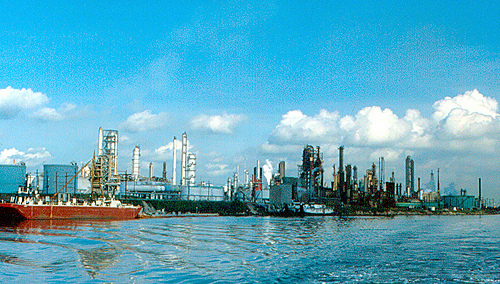6 Surprising Global Benefits of the Shale Boom
-
It’s Boosting the Worldwide Economy
 Image via Flickr by roger4336
Image via Flickr by roger4336The massive oil and gas reserves freed for consumption by the new techniques of fracking could soon account for 12 percent of global production. This, in turn, could drive oil prices down by as much as 40 percent. The typical consumer rarely realizes how much oil prices contribute to the prices they pay everywhere from the grocery store, to the office supply outlet.
Lowering the cost of fuel will effectively drive down the prices of all consumer goods, allowing people to buy more with the money they earn. Since most countries depend on oil imported from other countries, this economic boost will be felt around the globe, as the surplus of oil lowers the price of transportation. Countries with the most technically recoverable reserves are Russia, the United States, China, Argentina, Libya, Australia, Venezuela, Mexico, Pakistan, and Canada, in that order.
-
It’s Boosting Profits for the Transportation Industry
Once the shale oil is harvested, it has to be transported to a refinery for processing, so that it can be separated into all the products we use crude oil for. These include gasoline, petroleum, motor oil, and more. Trucking companies, railroad companies, and shipping companies are the beneficiaries. The shale oil and gas boom has increased demand for some of these services by as much as 53 percent.
After extraction and processing, the oil and gas then must be shipped to the countries buying it. Russia, Canada, and Argentina are also significant producers of shale oil and natural gas. China, Syria, Thailand, and Turkey also have substantial shale oil and gas reserves, but have not yet been successful at extracting it for use and export. This means better business for the shipping industry, as well as trucking and shipping companies within those countries.
-
It’s Opening Up Support Jobs
The trademark of any economic recovery is the creation of new jobs. The shale boom hasn’t just added 162,000 jobs (a 40 percent increase) in the oil and gas industries, it has also opened new employment in support industries. This has created a higher demand for logistics professionals, construction workers, blasting services, painters, brokers, and a variety of consultants.
Though this trend is most evident in North America, the same is becoming true in other nations as their shale extraction methods are developed. China likely has vast natural gas resources locked under shale, which could supply the entire continent of Asia.
-
It Could Postpone the Effects of Losing Coal Power Plants
Worldwide, nations are facing backlash from environmentalists over the use of coal plants, which contribute to carbon emissions. Carbon emissions are possibly a contribution to climate change. Whether or not climate change is real, or is attributable to human activities at all, the United States and other nations are cracking down on the building of new coal power plants, and restricting the operations of current facilities.
As this occurs, the world still needs reliable sources for energy, as most of the sustainable energy sources (such as solar and wind power) are not yet affordable and efficient enough to sustain the global demand. Until there is an alternative, natural gas and oil remain our most viable options. Unfortunately, many governments have banned fracking, such as some jurisdictions in Spain, Mexico, France, Bulgaria, Romania, South Africa, Germany, and the Czech Republic.
-
It Is Liberating the World from the Instability in the Middle East
The nations we have traditionally turned to for oil, including Syria, Egypt, Iraq, Iran, and others, are undergoing radical social, religious, and political upheaval. These issues have, at times, disrupted oil production and shipping, which drives up prices all over the world. China, for example, during its transition to an industrialized nation, was forced to pay higher prices for oil to fuel their factories because the Egyptians are having riots. The same is evident in the United States, Canada, and Europe.
By harvesting crude oil and natural gasses in the United States and other stable environments, the entire world is free from Middle Eastern dictators, such as Saddam Hussein, who held the country of Kuwait hostage for its oil reserves. These benefits are in addition to the lower cost of oil when it doesn’t have to be transported via the Suez Canal and Panama Canal.
-
These Benefits are Not Just Short-Term
Fracking is not without its critics, but to date none of the naysayers have offered a better plan for powering our vehicles, office buildings, and homes. By the year 2030, North America could be completely energy independent due to fracking, requiring no oil or gas exports from overseas. Meanwhile, oil reserves in the Middle East are dwindling, and it is doubtful they will remain a key player in the industry beyond the next 50 to 60 years.
It is unclear exactly how long shale oil and gas reserves could sustain modern civilization. Much of the answer depends on other countries’ abilities to recreate the shale oil and gas extraction methods, such as fracking, that have been so successful in many parts of the globe. But it is clear that shale reserves will take us far beyond what we would enjoy without these methods. The crucial point is that shale oil and gas reserves could carry us long enough to develop renewable, sustainable energy generation that will carry us into the next era of human innovation.
Nuclear fusion? A next generation of solar power? Only the future will tell.












